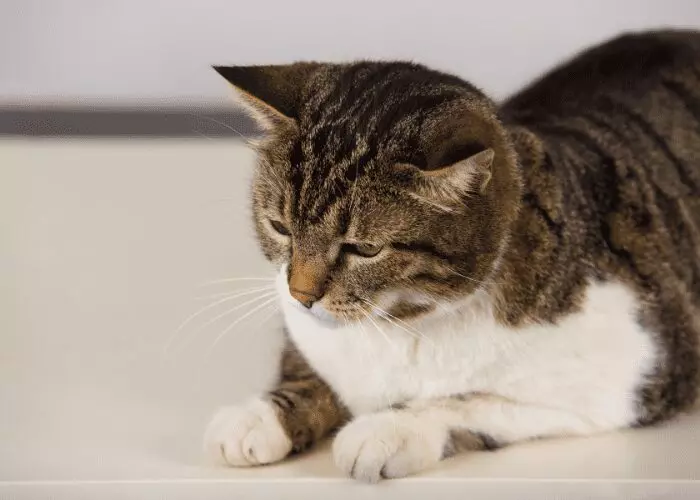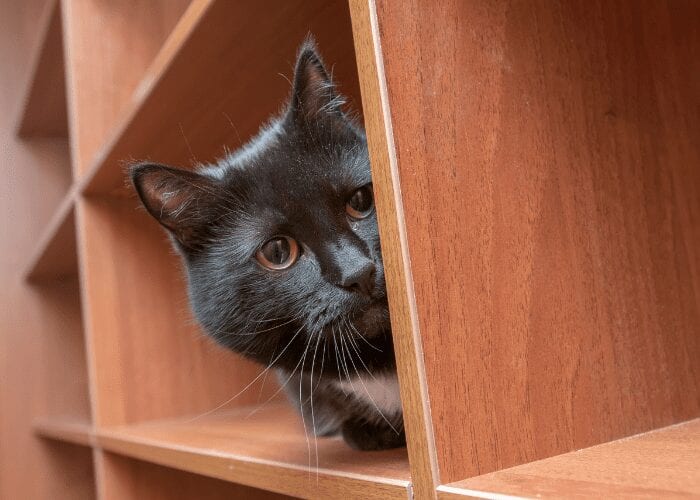Cats are so independent. They do not require walks or baths and take care of themselves for the most part. This is pretty inviting for a new pet owner. But being so independent can also be not so great for your kitty. For this reason, it can be hard to know when there is something wrong with them until it is too late, and they need serious medical attention.
Most cats will hide when they are not feeling well. Why do they do this and what do you need to know and what to do?
In a wild or feral environment, a cat is an animal of prey to many predators including coyotes and large birds. They spend most of their time hiding unless they are hunting, which is why you do not see many feral cats roaming around and why females have their kittens somewhere safe, like in a deserted building. Cats will isolate themselves to stay safe and protected, especially when they are vulnerable.
Sickness is a sign of weakness that makes a 9lbs cat even more vulnerable and an easy target for possible predators.
So, the best thing for them to do to survive is to hide. If your cat is sick and is hiding all the time, it is not that your cat thinks of you as a predator, it is just that it’s literally programmed into their instincts to hide when they are vulnerable.
Because of this instinct of hiding when sick is programmed into your cat, it can be really difficult to detect illness at home. Unless the obvious happens of vomiting, diarrhea, urine output, and changes in appetite and water intake, as well as a change in activity level.
It is important to pay attention to your cat’s behavior.
Are they not able to jump up on the furniture like they use to? Do they miss their landing target entirely? If they don’t run around or plan anymore, and just want to lay around, they could be in pain. Back pain is common in older kitties and unless they are taken to a veterinarian for an exam, a cat owner would never even know.
Changes in water intake and urine output can also be important changes in your cat’s behavior to watch for. An increase in both can be signs of diabetes or kidney problems. Vomiting and diarrhea can be signs of a gastrointestinal problem. Even an increase in grumpiness can be a sign of an illness.
If you notice your cat hiding more, pay more attention to their behavior when they come out. Are they eating and drinking? How is their attitude? Do they walk hunched over? Have you noticed any vomit lay around, diarrhea, or a lot more urine spots in the litter box? If so, they need to be seen by a veterinarian. Unfortunately, many cat owners don’t notice that their cat is losing weight until they have lost a substantial amount, so pay attention to that as well.
Regular check-ups can help stay on top of illnesses as well. At the end of the day, you are the one that knows your cat the most. If something is off and your cat is hiding most of the day, call your veterinarian and schedule an appointment.







